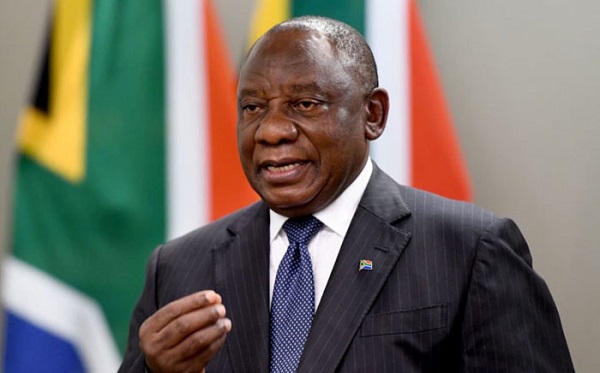South African President Cyril Ramaphosa has signed into law a bill allowing land seizures by the state without compensation - a move that has put him at odds with some members of his government.
Black people only own a small fraction of farmland nationwide more than 30 years after the end of the racist system of apartheid - the majority remains with the white minority.
This has led to frustration and anger over the slow pace of reform.
While Ramaphosa's ANC party hailed the law as a "significant milestone" in the country's transformation, some members of the coalition government say they may challenge it in court.
The law "outlines how expropriation can be done and on what basis" by the state, the government says.
It replaces the pre-democratic Expropriation Act of 1975, which placed an obligation on the state to pay owners it wanted to take land from, under the principle of "willing seller, willing buyer".
The new law allows for expropriation without compensation only in circumstances where it is "just and equitable and in the public interest" to do so.
This includes if the property is not being used and there's no intention to either develop or make money from it or when it poses a risk to people.
The president's spokesperson Vincent Magwenya said that, under the law, the state "may not expropriate property arbitrarily or for a purpose other than... in the public interest".
"Expropriation may not be exercised unless the expropriating authority has without success attempted to reach an agreement with the owner," he added.
The pro-business Democratic Alliance (DA), the second largest party in the government of national unity (GNU), says it "strongly opposes" the law and was consulting with its lawyers.
The Freedom Front Plus, a party which defends the rights of the white minority and is also in the GNU, vowed to challenge the constitutionality of the law and do "everything in its power" to have it amended if it is found to be unconstitutional.
BBC





